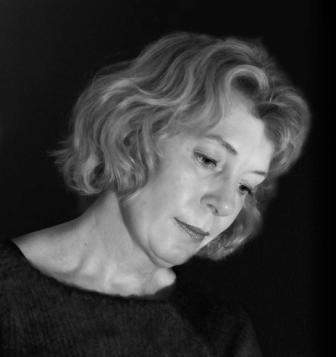Poet
Inger Elisabeth Hansen

Inger Elisabeth Hansen
(Norway, 1950)
© Thomas Brun
Biography
Inger Elisabeth Hansen’s language glows through poetry that is buoyed by a rare clarity of thought. Her poems are solid and fluid, ironic but desperate; she is more often amusing than many may think. Her poems are taut, but never isolate themselves, always looking outwards. She has been labelled a political poet, and not without reason, although this label may well have limited her poetry’s appeal to a broader audience.
Mystery is often a starting point for understanding. At times, Hansen is like a sphinx, or a more or less merry oracle. Wisdom, more than peace, is the perspective for her poems, and man is the measure for God – while peace, or the sacred, is the heaven we can experience together.
Hansen’s observations of the world are explorative, but it is perhaps first and foremost language itself that is this poet’s main concern. Language represents the world for us, gives us versions of the world, and Hansen’s poems set these versions in motion. I rosen (In the Rose, 1993) investigates a time of change in the world, with the end of the Cold War, the emergence of the Balkan wars and NATO’s changing mandate. In Fraværsdokumenter (Documents of Absence, 2000) the images of the enemy in the book’s poems are turned inside out, resulting in, among other things, negative images (in the optical sense) of ‘the enemy’.
A significant number of the poems in Trudge (Trask, 2003) are dedicated to the mystic and poet San Juan de la Cruz. At the same time, they are part of a tale about a continent: South America, and its relation to Europe. The names,[what kind of names? place names?] that are meaningless to the conquerors are full of meaning – but to whom? This is the kind of question that weaves like a thread in and out of Hansen’s frieze, a work of poetry that beams with delight at the expressive possibilities of language, while simultaneously displaying its inherent brutality.
Hansen’s poems have a commanding voice: it is clear, never woolly. The voice in her poems is authoritative; it can be tender, it can be angry, but it is never gloating or ingratiating.
© Torunn Borge (Translated by Cameron Sharp), A version of this article was first published in 2004.
The translations of Inger Elisabeth Hansen’s work have been published with the financial support of NORLA (Norwegian Literature Abroad, Fiction and Non-Fiction).
Det er nå det er like før (It’s Now it's about to Happen), Aschehoug, Oslo, 1976
Klodedikt, Aschehoug, Oslo, 1979
Hablabaror, Aschehoug, Oslo,1983
Dobbel dame mot løvenes ørken, Aschehoug, Oslo, 1986
I rosen (In the Rose), Aschehoug, Oslo,1993
Fraværsdokumenter (Documents of Absence), Aschehoug, Oslo, 2000
Trask: forflytninger i tidas skitne fylde (Trudge: Transferrals in the Dirty Fullness of Time), Aschehoug, Oslo, 2003
Short stories
Pinlige historier, Aschehoug, Oslo, 1991
Essays
Blindsoner (Blind zones), Aschehoug, Oslo, 2002
Children’s books
Hugo og de tre som forsvant (Hugo and the Three that Disappeared), Aschehoug, Oslo, 1992
Poems
Not a wheel of fortune left
HORSE, SKYWARDS,/ LEAPS OUT OF ITSELF LIKE A WORLDLESS/ FACT
possibly a heroine or a sexed victim
A wanderer wanders here
She can quite simply just go
but it’s not at all certain
with diagonal stripes across her breasts
Harder, drier, straight-drawn diagonally
tawny the curls
She who stands over there
Poems
Poems of Inger Elisabeth Hansen
Sponsors





Partners
LantarenVenster – Verhalenhuis Belvédère

